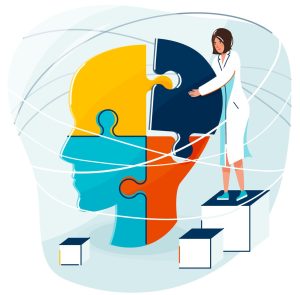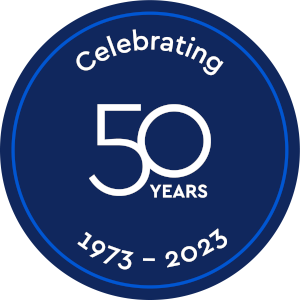What is neurodiversity?
Neurodiversity is an umbrella term that has been around since the 1990s, first used by Judy Singer, a sociologist with autism. It’s a viewpoint that the brain works differently from those who are deemed normal (neurotypical). People who are neurodiverse experience, interact and interpret everything around them differently. 30%-40% of people in the UK are believed to be neurodiverse.

What are the types of neurodiversity?
There are several recognised types of neurodiversity, which include:
- Attention deficit hyperactivity disorder (ADHD) – a condition that affects behaviour
- Asperger’s syndrome – difficulties in social situations
- Autism – challenges with social skills, speech, and more
- Dyscalculia – difficulty in understanding numbers
- Dyslexia – difficulty with letters and words
- Dyspraxia – condition affecting co-ordination
- Obsessive-compulsive disorder (OCD) – obsessive or compulsive behaviours
- Tourette’s syndrome – a condition of the nervous system

What causes neurodiversity?
There are many factors that could cause someone to be neurodivergent:
- Genetics
- Trauma at birth
- Immune disorders
- Infectious disease
Neurodiversity in the workplace
There would have been a time when being neurodiverse would be seen as a hindrance or being neurodiverse meant someone was ‘stupid’. As it is now considered a ‘disability’, a lot of modern workplaces have policies in place, to help their neurodiverse employees thrive in their roles.
Benefits of neurodiversity
People who are neurodiverse interpret the world differently from others. Everyone is different, and they all bring valuable assets to the table. They can have:
- High levels of concentration
- Keen accuracy
- Ability to detect errors
- Strong recall and detailed knowledge
- Appreciation for routine
- Out-of-the-box thinking
How can I adapt my interview process?
Adjusting the way you interview candidates, being aware of their challenges, lack of eye contact, or weak social skills. Choose questions carefully and make them to the point, focus on their skills, as less is more. Even passing the questions over to the candidate at least 30 minutes before their interview is a big help, it gives people time to read through the questions and think of their answers, as they may not be able to think of responses on the spot. Be mindful of the location for the interview, choosing quiet spaces, with little distraction is best.
How can I be more inclusive?
Change your work environment, make it comfortable for both neurodiverse and neurotypical people to work. Ensure you adapt to the needs of neurodiverse people, that could be ergonomic keyboards, coloured computer screens, specialist software, standing desks, or dim lighting. The best course of action is to always ask the person what adjustments they will need, this way they’ll know you understand their needs and will want them to thrive in the workplace, making them feel safe. A lot of these adjustments are free or very cheap.
Train staff
Studies have been conducted that shows many neurodivergent people feel excluded at work by their colleagues. The stigma and bias around neurodiversity still endure. Educating staff about the different types of neurodiversity and how they can interact with these individuals, will make them feel less anxious and feel included.
Neurodiversity within the construction and geospatial industry
It’s no secret that construction and other industries need to be more diverse when it comes to their workforce. Arran Linton-Smith, who is autistic and worked for Interserve as a CDM consultant for 11 years was quoted in Construction News, “Unless our industry (construction) becomes more diverse, it’s not going to survive.” Thinking about the future, they must appeal to potential employees. The construction and geospatial industry have a history of lacking inclusivity. Many neurodiverse people believe organisations don’t support them in the ways they need. The future of the industry relies on the ability to adapt and see the positives, understanding the benefits neurodiverse individuals can bring to the profession.
A lot of neurodiverse people hide who they are when they are in full-time employment. They’re scared of the way their peers will treat them or believe only the stigma around their ability to think differently. Feeling as though you don’t belong is a struggle and one these individuals face every day. As an industry, we need to do more to encourage neurodivergent people to be themselves.
At Powers, we’ve found having neurodiverse people in our team has had a positive impact on the way our business works. Everyone is different, and their needs are different, but if you match their skills to the role, everyone thrives. We pride ourselves on our diversity with our employees, and we always welcome more neurodiverse people into our workforce.
We’re currently recruiting, check out our careers page to see the roles we have.
We look forward to hearing from you.

Useful websites:
https://www.bdadyslexia.org.uk/
https://www.adhdfoundation.org.uk/
Main image source: Adobe Stock Image








